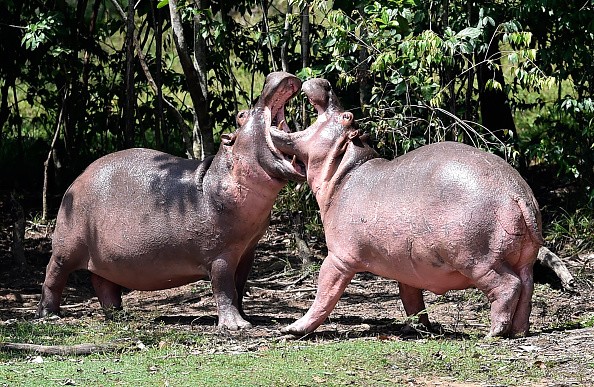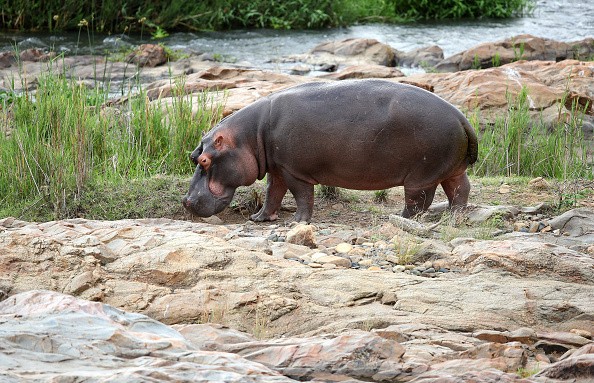The size of male hippopotamuses is unusual. Among mammals, the sizes of males are usually far larger than females, but this seems to be different in hippos - the sexes have surprisingly almost the same body sizes. The jaws and tusks of males are much bigger.

Semi-aquatic Behavior of Hippo
Recent research carried out by researchers, using data discovered from 60 years ago on close to 3,000 hippos, propose that their semi-aquatic behavior could possibly be crucial in reducing the size dissimilarities between the sexes.
Water decreases the importance of big body size in a territorial contest. And visually checking your opponent is challenging when they are nearly submerged totally.
So by yawning and showing the opening of their jaw and their tusks size, male hippos usually signal dominance and this seems to be more crucial than body size.
As part of the research, the researchers were lucky to obtain an uncommon dataset on the body size of hippos, after an email from a scientist at the British Antarctic Survey, David Walton.
The Study
The researcher drove to Cambridge, returning with piles of notebooks that have rare and comprehensive measurements of 2,994 hippos which were taken from 1961- 66 in Uganda, all well recorded using imperial units.
In the past, laws had made use of the data to discover the age of each animal with the use of their tooth size and wear.
The researchers used the data to precisely examine the body sizes and growth of the sexes which have never been done. Two Bangor University master's students made effort to digitize and translate it to metric units and start the analysis.
Male mammals are believed to have developed much bigger body and weapon - tusks, antlers, horns - size than the ones belonging to females because of the different mating methods of the sexes. Females put in a great amount of time and energy on pregnancy, lactation, and weaning, while the input of males normally ends with ideal copulation.

The Discovery
However, researchers are now aware of so much more regarding why the enigmatic hippo varies in this regard and this extremely interesting aspect of evolutionary biology, all this information emerged due to the finding of this 60-year-old dataset.
The findings have disclosed that intense male competition doesn't bring about a larger body size always. Actually, diet, environment, and physiology control the dissimilarity between males and females very much.
Hippos have a number of special adaptations that enable them to survive in some of the harshest environments on earth. One of these adaptations is the ability to swim, which allows hippos to move around in areas where there is water. Another adaptation is the fact that they are able to breathe on land as well as in water.
They are also known to be intelligent animals and can communicate with each other using clicks and grunts.
For more news, updates about hippos and similar topics don't forget to follow Nature World News!
© 2026 NatureWorldNews.com All rights reserved. Do not reproduce without permission.





